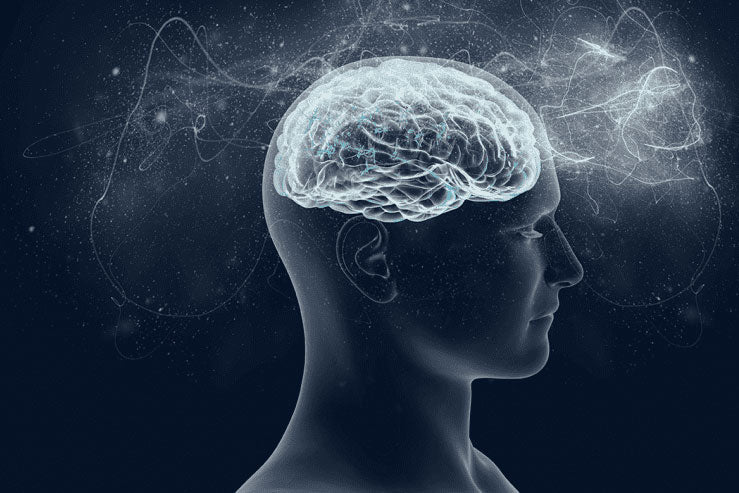Low energy and brain-fog are complaints we hear from at least 80% of our female patients between the ages of 30-60. And as common as these symptoms are, that doesn’t make it any less frustrating for the person that feels like they are dragging themselves through each day.
This combination of fatigue and iron deficiency brain fog are red flags from your human body that it is lagging behind. While there can be underlying and more complex reasons for these symptoms, sometimes its as easy as fixing a simple nutrient deficiency. These four deficiencies are the most common easy-to-fix nutrient imbalances we see.
1. Iron deficiency
The most common form of anemia is iron deficiency anemia, which can result from poor diet, sluggish digestion, insufficient absorption in the intestines, blood loss (including menses), or even increased needs due to high physical activity. People at the highest risk to develop iron deficiency anemia are menstruating women, those with gastrointestinal or autoimmune diseases (known or unknown), those that have had gastric bypass, and vegans/vegetarians.
Iron is required by your red blood cells to bind oxygen. Each red blood cell should bind four oxygen molecules, which are then transported around the human body to cells that require oxygen to generate energy. If you are functioning with low iron, your red blood cells will bind less oxygen, leaving your cells operating behind the curve. This leaves you feeling lethargic and contributes to iron deficiency brain fog.
Common signs of being iron deficient include chest pain, cold hands, pale skin, fatigue, and difficulty concentrating. Pregnant women are at especially high risk and should monitor how much iron they are getting through iron rich foods or supplements.
Iron supplementation can often reverse deficiencies, but a blood test is the only way to confirm the actual cause. If patients have poor digestion or absorption, iron infusions are sometimes necessary to restore overall health quickly.
2. Vitamin B12 deficiency
Just like iron helps red blood cells bind oxygen, vitamin B12 makes those cells small enough to fit into tiny capillaries so oxygen can be delivered to the most remote cells, including your brain. If you feel foggy and mentally sluggish, your brain may be low in oxygen.
B12 deficiency can mimic iron deficiency brain fog and is common in those with poor digestion or diets low in animal products. It can usually be corrected with supplementation or infusions.

3. Vitamin D deficiency
Vitamin D is synthesized by the interaction between UVB rays and cholesterol molecules within the skin. And although our bodies can make this critical vitamin, most people in the NW are suffering from low levels either from lack of sunlight exposure or higher demands for D within the body. The reality is that most people now wear sunscreen when exposing themselves to sun or spend too much time indoors. Regardless of the reason for deficiency, when reserves are low energy levels and brain function suffer. Most of our patients need between 25,000-50,000IU per week to getup to speed, but it’s also essential to test levels every few months to make sure that your body is maintaining optimal range.
4. Magnesium and potassium imbalance
Magnesium and potassium are two of the most important minerals in the body. Magnesium is needed for normal muscle and nerve function, strong bones, a healthy immune system, and a steady heart beat steady.
Over 60% of U.S. adults are deficient in magnesium. Low magnesium levels are linked to low energy and in more extreme cases to chronic fatigue syndrome.
Potassium is involved in building protein, breaking down and utilizing carbohydrate, normal growth and muscle formation, a healthy heart and controlling the pH balance of the body. In addition, both minerals are needed for energy production. Even slightly decreased levels of potassium can cause often-ignored symptoms like low energy, constipation and muscle weakness.
Increasing whole food intake with an emphasis on fresh fruits and vegetables can help. However, we find that supplementation and even the occasional infusion can be necessary for some that struggle to build up their supplies in the body.

From a functional perspective
In functional medicine, every symptom—including fatigue and iron deficiency brain fog—is a clue pointing to deeper imbalances. Instead of masking symptoms, our goal is to uncover the actual cause so the human body can restore balance naturally.
Ignoring iron deficiency and other nutrient deficiencies doesn’t just impact mental clarity. Over time, it can lead to chronic conditions that affect your entire overall health. By identifying and correcting these deficiencies early, you can support your body’s natural healing process and eliminate brain fog, fatigue, and related symptoms.
About Megan Barnett, MS
 Megan Barnett is a functional medicine practitioner in Portland, Oregon. In her clinical practice, she helps patients identify the root cause of their health problems, then designs individualized and evidence-based approaches to alleviate symptoms and help their bodies heal. She has a Bachelor of Science in Dietetics from Kansas State University and a Master of Science in Nutrition and Functional Medicine from University of Western States.
Megan Barnett is a functional medicine practitioner in Portland, Oregon. In her clinical practice, she helps patients identify the root cause of their health problems, then designs individualized and evidence-based approaches to alleviate symptoms and help their bodies heal. She has a Bachelor of Science in Dietetics from Kansas State University and a Master of Science in Nutrition and Functional Medicine from University of Western States.

